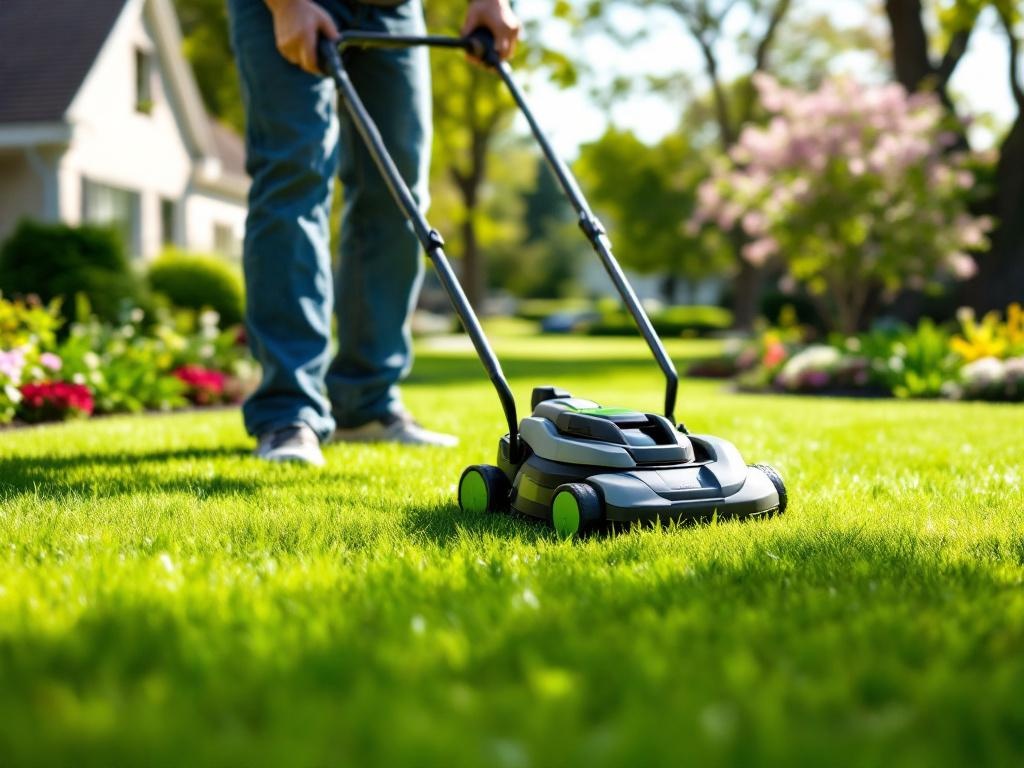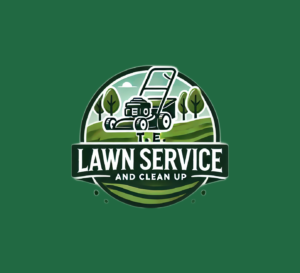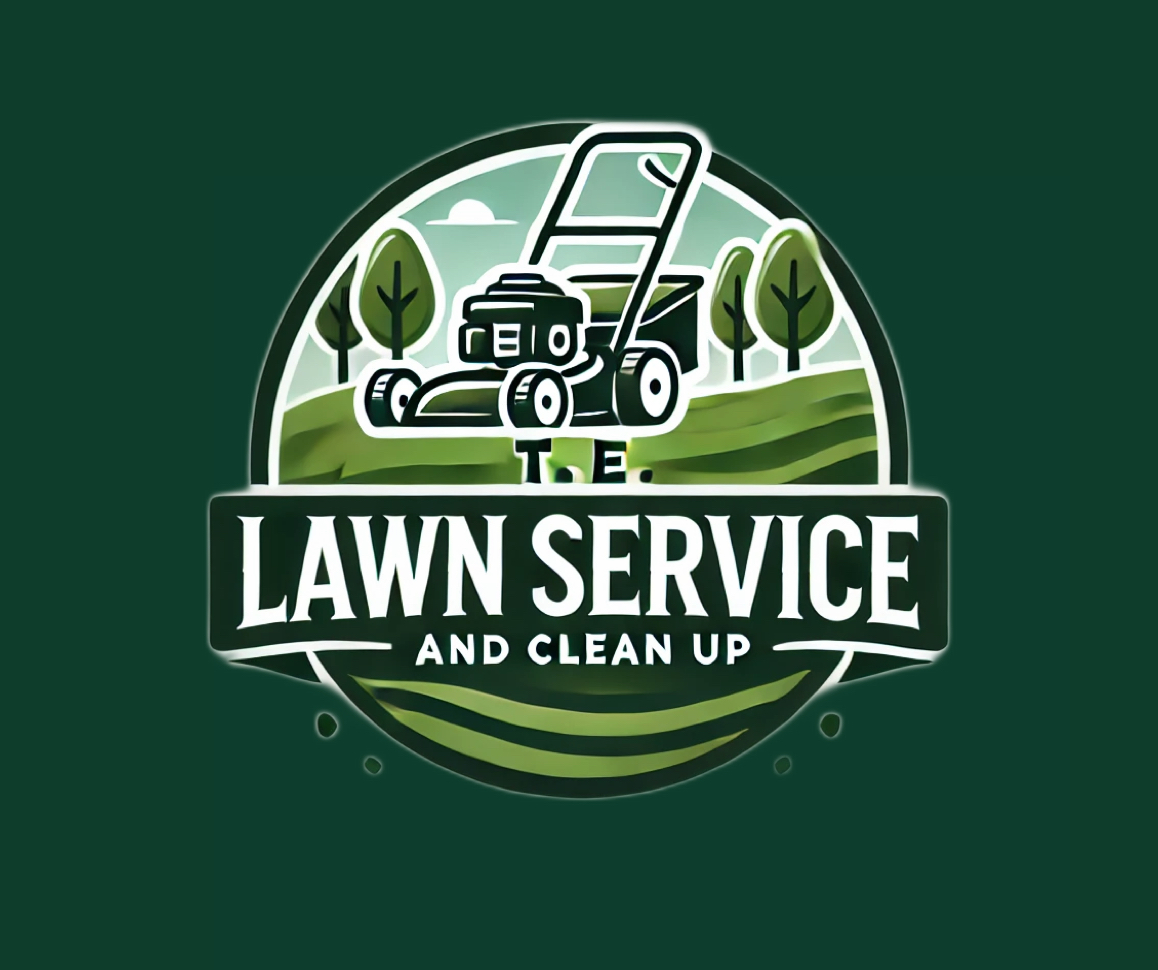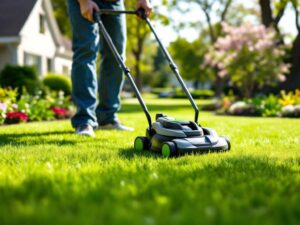Understanding Your Lawn
Identify Your Grass Type
Knowing your grass type helps tailor your care strategy. In the Atlanta area, the most common types are:
- Bermudagrass – Heat-tolerant, thrives in full sun, spreads aggressively.
- Zoysiagrass – Dense and lush, tolerates foot traffic, grows slowly.
- Tall Fescue – Cooler-season grass, prefers partial shade, needs more water in summer.
Test Your Soil
Use a soil test kit (available at most garden centers) to check pH. Most grasses prefer a pH between 6.0–7.0. Add lime for acidic soil, or sulfur for alkaline soil.
Mowing & Edging Tips
Set your mower height based on grass type. For example:
- Bermudagrass: 1–2 inches
- Zoysiagrass: 1.5–2.5 inches
- Fescue: 2.5–3.5 inches
Edge your lawn every 1–2 weeks to maintain clean lines around beds and sidewalks. A string trimmer or manual edger will do the job.
Fertilization Basics
Use a slow-release granular fertilizer with N-P-K values like 16-4-8 (warm-season) or 20-5-10 (cool-season). Water lightly after application.
Fertilizing Schedule
- Warm-season grasses: Feed in March, May, July, and September
- Cool-season grasses: Feed in early fall and late winter
Weed & Pest Control
Apply pre-emergent weed killer in early spring to block crabgrass and other invaders. Use selective herbicides for broadleaf weeds like dandelions. For pests like grubs or chinch bugs, consider a lawn-safe pesticide or introduce beneficial nematodes.
Aeration & Overseeding
Core aeration reduces soil compaction and promotes stronger roots. Fall is ideal for overseeding cool-season grasses. After aeration:
- Spread seed evenly with a broadcast spreader.
- Rake lightly for seed-to-soil contact.
- Water daily until seedlings are 2 inches tall.
Smart Watering
Lawns typically need 1–1.25 inches of water weekly. Water early in the morning to reduce evaporation and avoid fungus. A smart sprinkler timer can adjust for weather automatically.
Seasonal Lawn Care Calendar
| Season | To-Do List |
|---|---|
| Spring | Test soil, apply pre-emergent, start mowing, fertilize |
| Summer | Mow regularly, water deeply, treat weeds and pests |
| Fall | Aerate, overseed, fertilize (cool-season), leaf cleanup |
| Winter | Sharpen tools, store mower, plan spring strategy |
Essential Tools for DIY Lawn Care
- Lawn mower (with sharp blades)
- String trimmer / Edger
- Broadcast spreader
- Leaf rake
- Soil test kit
- Garden hose with timer or sprinkler system
Final Thoughts
You don’t need to hire a service to maintain a beautiful lawn. With a simple schedule and the right tools, you can take pride in a healthy, green yard—all by yourself. Bookmark this page and follow these tips season by season to see lasting results.





